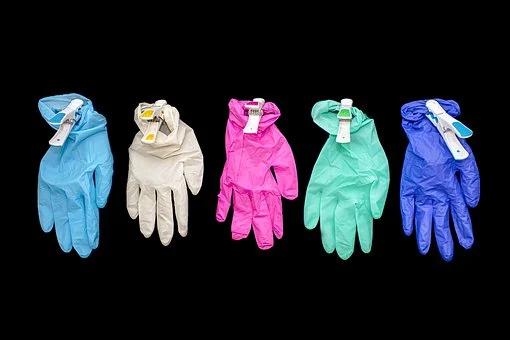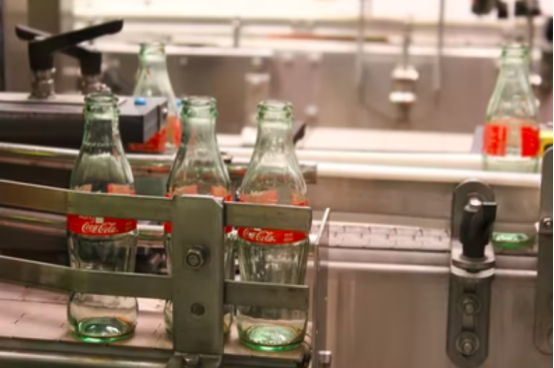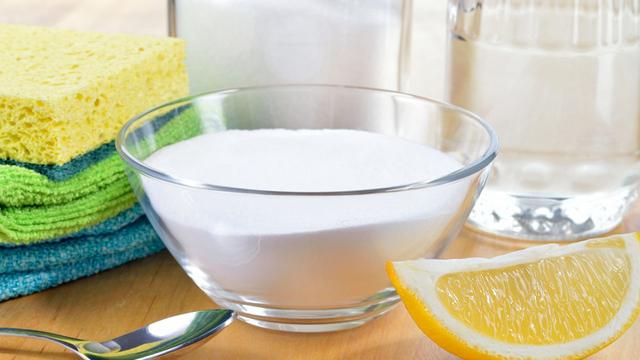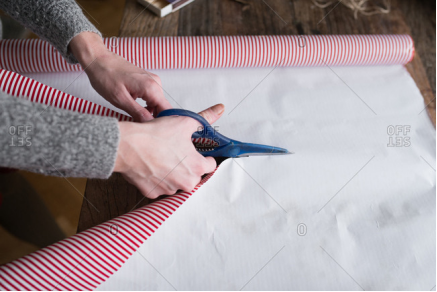Can you wash it in the dishwasher?
Dishwashers take the elbow grease out of removing greasy food stains from your dining ware, and power away baked-on bolognese and lingering lasagne from pots, pans and baking dishes.
But unlike your kitchen sink where you can wash everything but, well, the kitchen sink, some things don't fare well in your dishwasher's inhospitable insides.
Here's a list of exactly what you can and can't safely wash in your dishwasher so you never have to wonder again whether your great-aunt's silver-plated teaspoons will survive the cycle. (Hot tip: you're better off handwashing them if you want them to stay silver.)
Here's what CHOICE's kitchen experts say you can and can't wash in the dishwasher.
| Item | Wash in dishwasher? | Expert comments |
|---|---|---|
| Aluminium | No | |
| Ashtrays | No | The ash particles can clog up the dishwasher. |
| Baby bottles | Yes | Wash on the top shelf. Depending on your baby's age, you may still need to use a steriliser. |
| Baking cookware | It depends | Stainless steel is fine. Don't put aluminium or non-stick bakeware in the dishwasher. |
| Bath toys | Yes | Wash on the top shelf. Don't put squeaky toys or anything with batteries in the dishwasher. |
| Blender | No | We suggest washing these by hand. |
| Bone-handled cutlery | No | The dishwasher will corrode the bone. |
| Brass or any soft alloys | No | |
| Breast pump parts | Yes | Wash on the top shelf. Don't put anything electronic or battery-operated in the dishwasher. See baby bottles. |
| Cast iron | No | The dishwasher will strip the seasoning from the pan. And if the cast iron stays wet for any length of time, it will rust. |
| Ceramic baking dishes | Yes | Using the dishwasher makes cleaning baked-on residue easy. |
| Ceramic knives | No | Will dull the blade, and you could cut yourself emptying the dishwasher. |
| Chef's knives | No | High-carbon steel knives will corrode in the dishwasher, and will lose their sharpness bumping against other items. It's also not safe emptying the dishwasher with sharp knives inside. |
| Clothes | No | The alkaline detergent could reduce the life of fabrics, and having clothes flop around in the dishwasher could interfere with its action. |
| Coffee plungers | Yes | |
| Copper cookware | No | |
| Dog toys | Yes | Remove from dog first. Don't put squeaky toys in the dishwasher as they'll fill up with water. |
| Dummies and teething rings | Yes | Don't expect them to be sterilised. See baby bottles. |
| Enamelware | Yes | Using the dishwasher removes any baked-on residue easily. |
| Exhaust fan filters and covers | Yes | |
| Fine aluminium cookware | No | |
| Fine china | No | |
| Flip flops/thongs | Yes | Rubber/plastic thongs only. |
| Food processor | No | Manufacturers say some parts can go in the dishwasher but our kitchen experts don't recommend it as the dishwasher can weaken and discolour areas of the plastic. |
| Hairbrushes and combs | Yes | Don't put combs or brushes with wooden handles in the dishwasher. |
| Hand-painted ceramics | No | |
| Keys | Yes | Don't wash electronic keys! Regular metal keys are fine. |
| Kitchen scrubbing brush | Yes | Disinfects and removes odours. |
| Kitchen sponges | Yes | Disinfects and removes odours. |
| Lead crystal | No | Can leach the lead out of the crystal. |
| Lego pieces | Yes | Put in a mesh bag on the top shelf so small pieces don't get lost. |
| Makeup brushes | It depends | Plastic- or metal-handled brushes only. See wood. |
| Manicure and pedicure tools | It depends | Metal and plastic only. |
| Mason jar lids | Yes | May shorten the life of the jar lid by corroding the plastic. |
| Non-stick pans | No | Damages the delicate non-stick coating. |
| Oven racks | Yes | Make sure they don't interfere with the operation of the machine. |
| Pet food bowls | Yes | |
| Pewter | No | Pewter has a very low melting point so could warp in the dishwasher. |
| Pizza stone | No | Pizza stones should be kept as dry as possible – don't immerse in water. |
| Plastic building blocks | Yes | Top shelf only. Put in a mesh bag so small pieces don't get lost. |
| Plastic plates | Yes | Top shelf only. |
| Plastic toys | It depends | Don't wash squeaky toys — they'll fill up with water. Top shelf only. Put in a mesh bag so small pieces don't get lost. |
| Plastics | It depends | If it's not marked 'dishwasher safe', don't put it in the dishwasher. Dishwasher-safe plastics should go on the top rack to prevent them being melted by the heating element. |
| Pressure cooker lids | No | Small particles of food can get stuck in the pressure valves. |
| Sharp knives | No | High-carbon steel knives will corrode in the dishwasher, and will lose their sharpness bumping against other items. It's also not safe emptying the dishwasher with sharp knives inside. |
| Shower sponges and poufs | Yes | |
| Silver cutlery | No | |
| Soap dishes | It depends | Only if dishwasher-safe plastic, glass or ceramic. Handwash timber or other materials. |
| Stainless steel | Yes | Stainless steel pots with heat-resistant plastic handles are fine, but only clean in the dishwasher occasionally as the detergent can weaken the coating. |
| Stove burners | It depends | Can be heavy and bulky so could interfere with the operation of the spray arms, or bend the dishwasher racks. Use with caution. |
| Thermomix | It depends | Stainless steel jugs/bowls can be cleaned in the dishwasher with the blade removed. If they have plastic handles, double-check that they're heat-resistant first. |
| Thermos | No | The heat of the dishwasher may shorten its life. Best to wash by hand. |
| Tools | No | The alkaline dishwasher detergent could promote corrosion. |
| Toothbrush holders | It depends | Only if dishwasher-safe plastic, glass or ceramic. Handwash timber or other materials. |
| Trivets from gas cooktops | It depends | Can be heavy and bulky so could interfere with the operation of the spray arms, or bend the dishwasher racks. Use with caution. |
| Vases | It depends | Check what it's made of first. Lead crystal, delicate glass, hand-painted china, brass, pewter, copper and sterling silver shouldn't go in the dishwasher. And use the top rack for everything but the heaviest pieces. |
| Wine glasses | It depends | You can, but washing in the dishwasher will lead to etching and irreversible clouding on glassware over time. Denture cleaner will remove red wine stains. |
| Wood | No | Includes wooden spoons, bowls, chopping boards and wooden-handled knives. Wash by hand only. |
Dishwashers are great for pretty much all everyday plates, cups and cutlery, so given the time and water savings of a dishwasher, racking your plates in one instead of stacking them by the sink is a no-brainer. And because your dirty plates are out of sight you can wait a couple of days till the machine's full before you run it, for even more savings.
Modern dishwashers do a surprisingly good job cleaning even heavily soiled stainless steel pots and pans and ceramic baking dishes. Combined with a good-quality detergent, your dishwasher may clean away burned-on cheese and food particles that would pose a challenge when washing by hand.
Many dishwashers also have foldable or removable tines to make it easier to fit bulky pots, and some even have an intensive zone, designed specifically to give cookware an extra-thorough going over. Though you should still handwash non-stick, copper and fine aluminium cookware because they can be damaged by the dishwasher.
Sponges and scourers can get caked up with food particles pretty quickly, which means they're a hive for bacteria. Washing this handheld bacteria nest in the kitchen sink won't cut it from a hygiene perspective (that's where the bacteria came from in the first place), but rather than relegating your manky kitchen sponge to landfill and buying a new one, you can give it a new lease on life by running it through your dishwasher to leave it sanitised, refreshed and probably smelling better, ready to scrub for another day.
It's pretty inhospitable inside your dishwasher, even on a gentle cycle. That's why they clean so well, but it means not everything is dishwasher-safe. So what are you better off washing by hand?
Fragile glassware can scratch or break easily. So if you value your stemware then handwash it instead. (And just to be on the safe side and avoid breakages, maybe wash them the next morning if you've had a few glasses too many.)
Even durable drinking glasses can fall foul of the dishwasher and develop a white haze over time. Alkaline detergents slowly dissolve the glass itself (silicate filming and etching), leave tiny crystal formations (devitrification), and abrasives in the detergent can physically scour your glass (this gets worse with cheaper powder detergents).
If you're washing in hard water then you may even find cloudy calcium deposits on your glass, though unlike other causes of hazing, this can be removed.
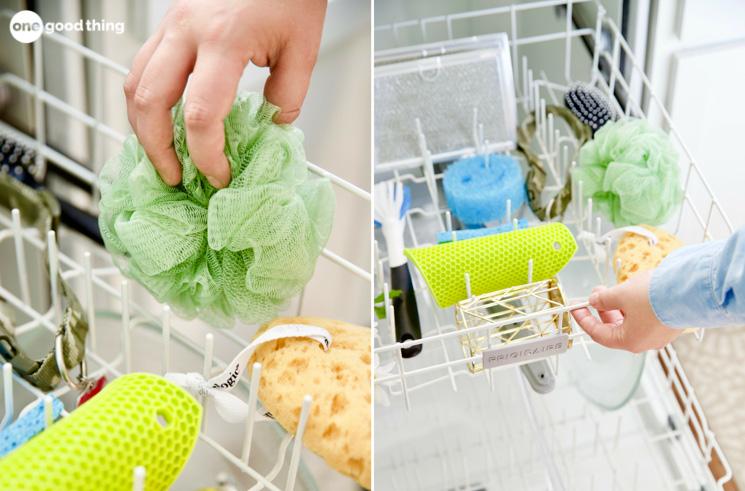
CHOICE tip: If your wine glasses have lingering red wine stains, use denture cleaner to remove them.
Leave your nan's lead crystal glassware in the display cabinet next to the teaspoons, because your dishwasher's high temperature and alkaline detergent can convert the lead into a soluble form which can be ingested next time you're enjoying a crème de menthe.
Sterling silver, pewter, aluminium, brass and copper will discolour in your dishwasher, and light aluminium items can also mark other items as they bump around during the wash cycle. Pewter can even warp due to its low melting point.
Nonstick coatings will deteriorate rapidly in your dishwasher – follow the manufacturer's cleaning instructions to extend their life. (And ask yourself – if they're really non-stick, why is there anything to wash off in the first place?)
Glossy, gold-coloured or hand-painted items will dull and fade in your dishwasher, and fragile items can be damaged by bouncing against other items or even by thermal stress.
The glue that binds hollow-handle knives, wooden cutting boards or other laminates will melt or soften in a dishwasher, and high temperatures and moisture damage wood, so handwash wooden items instead.
A hot dishwasher can warp or damage some plastics, and squeezing plastic items into small spaces may also cause warping – so while you can put them in the dishwasher, they should go on the top shelf.
Plastics also have a low thermal mass, so they don't dry especially well in your dishwasher.
Your dishwasher won't damage the cast iron itself, but it will strip off the layers of seasoning that protect your pan from rust and make it virtually nonstick.
But your skillet shouldn't go near the sink either – just wipe it out with paper towel to clean it, and remove stubborn cooking remnants with salt and elbow grease.
Dishwasher-wise, your good knives don't make the cut – their high carbon steel corrodes rapidly in your dishwasher's harsh, alkaline environment, and bouncing around with other items will dull carefully honed cutting edges. Plus, emptying the dishwasher is a far riskier proposition with a 6" chef's knife somewhere inside.
Items contaminated with wax, cigarette ash, poisons, mineral oils, wet paints and oiled tools should never go in your dishwasher, as contaminants can be left behind and redeposited on future loads.
Likewise, objects contaminated by solvents or flammable liquids could explode in a dishwasher, so (carefully) handwash them instead.
We care about accuracy. See something that's not quite right in this article? Let us know or read more about fact-checking at CHOICEJoin the conversation
To share your thoughts or ask a question, visit the CHOICE Community forum.

